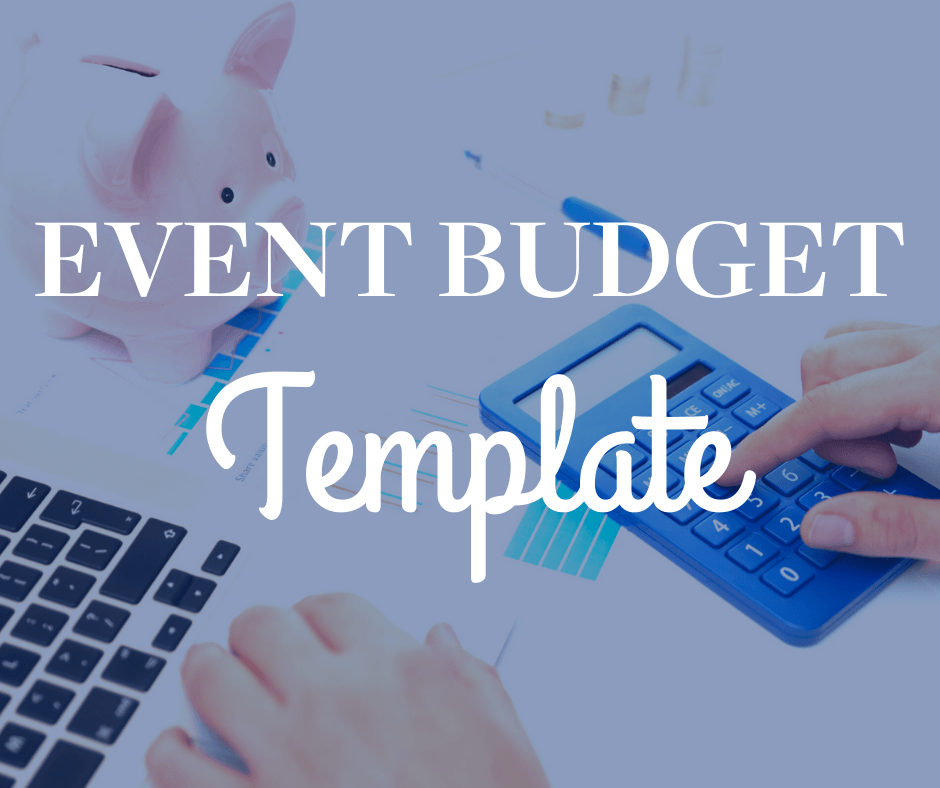How to Calculate Your Event Planning Budget
Ugh... coming up with an event planning budget... we feel your pain! There are so many moving parts, so many variables, and so many unknowns. Here at Only Successful Events™, we want to make it simple for you. You can event download our Event Planning Budget Template.

One of the quotes that #eventprofs know by heart is one by Benjamin Franklin that says, "By failing to prepare, you're preparing to fail." Plain and simple: if you don't make a concrete plan beforehand, you can expect some bumpy roads ahead.
Advanced preparation, whether that means having a backup generator or having extra speakers on standby in case your headliner bails, will all depend on the budget at hand. Therefore, you must have a well-calculated budget to ensure that everything will go smoothly from start to finish. The following are some helpful tips on how to plan your event budget accordingly:
1. Factor In ALL Elements When Calculating Your Event Planning Budget
The first step to calculating your event planning budget is to figure out all parts of your event that could potentially incur a cost.
Standard Items Usually Include:
More items that most people forget to include in their event planning budget:
I know when I first started producing events the below items were never calculated when I was sitting down to work on my event planning budget. There were always items that came up as needed. I hate to admit this... but usually I just pulled out a personal credit card or cash out of my purse to pay for these as they came up. Here's a few that I always include now:
As you figure out your event planning budget line items, you should ask yourself – what is your goal?
Do you want attendees to leave the venue remembering the delicious food, the electric ambiance, or the powerful speeches?Be sure to allocate your funds according to your priorities.
You just never know what is going to happen on the day of or the days leading up to the event. Working some leeway into your event planning budget will give you enough breathing room to take in any unexpected costs that might arise.
2. Use Past Data For Insights For The New Event Planning Budget
If you've hosted this type of event before, you can draw insights from the previous event budget that was used. Don't forget to look at the expenditures that actually went out!
However, if this is your first-ever event, you can request other event planners to provide you with resources they have used for recent events. I know this may seem silly... asking another event planner to share their numbers, but you'd be surprised. Most want to see others be successful. And they are willing to share their event budget and give feedback.
As a result, the historical data will help to expedite the budgeting process as you won't have to figure out everything from scratch. Be sure to adjust your budget accordingly, depending on whether the forthcoming event will be bigger or smaller.
Video Tutorial How to Use the Only Successful Events
TEMPLATE & SPREADSHEET: Event Planning Budget
3. Consult Vendors & Suppliers
After outlining the event elements and borrowing insights from historical data, you will need to reach out to vendors to confirm and adjust your budget estimates. Be sure to give each of them as many details about your event as possible. Also, request the cost of their services and what that cost includes, i.e., service fees, gratuities, tax, etc. You can contact several vendors and compare their costs to find the one that fits your budget and your vision.
4. Don't To Add An Emergency Fund Into Your Event Planning Budget
You just never know what is going to happen on the day of the event or in the days leading up to the event.
Working some leeway into your event planning budget will give you enough breathing room to take in any unexpected costs that might arise.
Depending on the type of event you are organizing, plan on having a contingency figure between five percent and twenty-five percent of your total budget.
5. Consider The Latest Event Industry Trends
Successful event planning budget should not only consist of negotiating the best deals with vendors, but it also entails strategically spending money. To properly allocate your event planning budget, you need to be conversant with the latest event industry trends. This will enable you to know which solutions are more effective and those that are no longer useful. Being well-versed with industry trends will help you to decide on where to increase your spending and where to reduce your spending.
Budgeting is an important component of the event planning process, and without a well-calculated event budget, you risk encountering some nasty surprises. If you're an event planner looking to simplify your entire budgeting process, you need an event planning budget template. It will not only make budgeting easier, but fun, and it will save you a ton of time!
Download the Only Successful Event's Event Budget Template now for simpler budgeting.
You may also be interested in...

